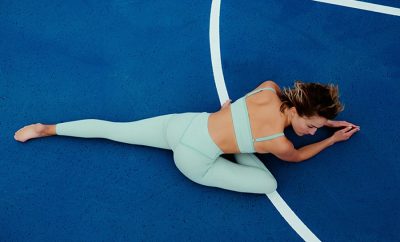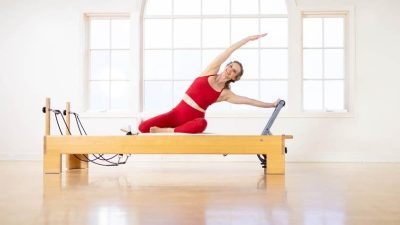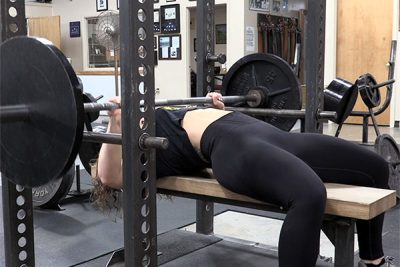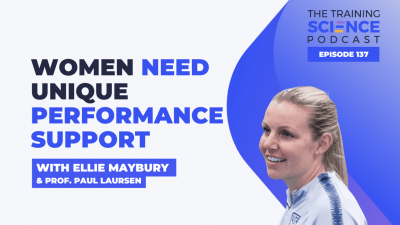
As someone who teaches yoga for golfers, I have witnessed firsthand the immense benefits that yoga can have for your golf game.
Golf is meant to be a fun, relaxing sport that you can enjoy for life. After years of working with golfers of all ages and and levels, I have yet to meet a golfer who doesn’t want to hit longer, more accurate shots.
The golf industry knows this too which is why the market is filled with swing gadgets, training aids, golf workout plans, clinics, and more.
There’s a time and a place for gadgets and tech, but if golfers are missing key movement patterns in their bodies, they’re likely facing an uphill battle.
Jumping into a new fitness program or changing up your swing technique without first having the right amount of joint mobility and flexibility can set you up for injuries, plateaus in your training, and frustration both on and off the course.
Luckily, restoring your body’s natural movement patterns and unlocking mobility and flexibility is easier than you might think. Enter the best hack I’ve seen for improvement: Yoga for Golf.
Why Yoga for Golf?
When I ask golfers if they’ve tried yoga, they often brush the thought aside and say, “Oh, I’m not flexible enough,” “I’d embarrass myself in a yoga class,” “I’m too old for that,” or “That’s not for me.”
After hearing their reasons, I remind them that:
- You don’t have to be flexible (at all) to start a yoga practice,
- Don’t worry about embarrassing yourself (you don’t even have to go to a studio!),
- Yoga is for all ages, and
- It’s absolutely for you!
What’s the difference between yoga in general versus yoga for golf?
What makes yoga for golfers different is that we’re not working on bending like a pretzel or standing on our heads. Instead, it’s about functional movement: working on joint mobility, flexibility, strength, and balance in a way that mirrors not only the golf swing, but also how each golfer moves through the swing.
Yoga for golfers is about functional movement: working on joint mobility, flexibility, strength, and balance
Beyond the physical, yoga provides an avenue for working on mental strength, concentration, tuning out external noises (other sounds and golfers on the course), and calming the nerves.
Incorporating different forms of pranayama, or breathing practices, can help golfers:
- Cultivate focus
- Warm up both the body and mind
- Release tension
- Soothe frustration after a bad shot
- Relax after a round
These are two areas that golfers might miss through more traditional forms of fitness and exercise.
This Is Why Balance Is So Important in Your Golf Game
Balance training is important for everyday living, but it’s especially important in the game of golf.
Golf courses are designed with challenge in mind, presenting golfers with a unique landscape of hills, rocks, peaks, valleys, bunkers, brush, and more.
This means that you’ll rarely find yourself standing on an even lie when playing golf. As a result, it’s necessary to know how to effectively shift your weight from one leg to the other, to independently load each leg, and to have both balance and control as you move through the swing.
Plus, as you age, balance training is critical in preventing falls.
Yoga for Golf: Flexibility and Injury Prevention
While it looks simple, the golf swing is a complex motion. And after walking four to five miles during a round, bending over dozens of times to pick up a ball, and taking well over 100 practice and actual swings, the game of golf can put a lot of strain on the body.
Because of this, it’s common for golfers to face aches and pains, including but not limited to:
- Lower back
- Shoulders
- Wrists
- Knees
Oftentimes, golfers will try to play through the pain or pop a few ibuprofen before a round. While this may seem to work temporarily, it’s only masking the problem and potentially making things worse.
I can see golfers relax when I tell them it doesn’t have to be this way.
This usually results in golfers having a hard time walking nine holes, let alone 18; difficulty sleeping or getting out of bed; slow recovery after a day on the course; and a growing sense of frustration with a game that’s meant to be enjoyed.
I can see golfers relax when I tell them it doesn’t have to be this way.
No matter how you might feel today, you can use yoga to alleviate ongoing aches and prevent future injuries. And – when practiced regularly – you can see results a lot sooner than you’d expect.
Add Yoga to Your Golf Game: Try These 5 Yoga Poses for Golfers
Sounds great, right? But if you’re thinking, “I don’t have the time,” you’re in luck. Sure, you could take an hour-long yoga class, but the beauty of yoga is that it only takes a snippet of time to reap the benefits.
Try on-demand yoga classes with us on YA Classes
By adding a few simple movements into your pre-round routine – or any time throughout your week – you can start to move better, feel better, play better, and ultimately play longer.
Let’s explore five yoga-based stretches designed to improve your golf swing by increasing mobility and range of motion, improving balance, building strength and flexibility, and enhancing focus.
Here are five yoga poses for golfers:
1. Cat & Cow (with a yoga block)
Cat & Cow is a great first yoga pose for golfers. It’s an easy, feel-good way to mobilize the spine, improve posture, and work on pelvic tilt. The ability to tilt your pelvis is a key indicator in getting the ball off the ground, so be sure not to skip this one!


- From your hands and knees, place a yoga block between your thighs (turning the block on the long, narrow side).
- As you inhale, lift your head and hips, opening your chest as your back dips toward the floor. Pull your shoulders away from your ears and engage your back muscles.
- On the exhale, round your spine as you energetically push the ground away from you.
- Drop your chin toward your chest, and squeeze the yoga block with your legs. This activates the hips and glutes, which serve as the power source in your swing.
Repeat five to eight times.
2. Twisting Table (with a yoga block)
This movement emphasizes rotation through the mid-back while improving posture and strengthening the lower body. This yoga pose variation also opens the chest, releasing tension and supporting the lungs for more effective breathing.

- Keeping the yoga block between your thighs, place one hand behind your head, elbow out to the side.
- On the inhale, twist open, opening your chest and reaching your elbow to the sky.
- On the exhale, return toward the starting position, tucking your shoulder and reach the elbow toward the opposite arm.
Pro Tip: Squeeze the block throughout the movement, being mindful not to sway or slide your hips.
Repeat five to eight times on each side.
3. Hip Drives with Side Bend
Hip drives are a great way to increase your hip and ankle mobility, learn how to use the ground, and improve balance. Adding a side bend helps with lateral flexion in the spine, a key movement in the golf swing.

- Step into a low lunge, stacking knee above ankle and shoulders above hips.
- Start with your hands on your hips, and make sure your knee is in line with your toes.
- As you inhale, drive your hips forward, focusing on keeping your spine upright and your front heel down. If it’s available, allow the knee to go past your toes.
- On the exhale, push your front foot into the ground and return to the starting position.
- To add a side bend, press the hips forward. Reach the opposite arm up (left arm up if right leg is forward), and side bend over the front leg.
- Return to the starting position on your exhale.
Repeat five to eight times on each side.
4. Extended Side Angle with Rotation
In order to have an efficient, effective, and repeatable swing, you need to cultivate a mobile upper body over a stable lower body. This movement, along with the Twisting Table (pose #2 on this list), does exactly that, making it another excellent yoga pose for golfers.

- From a standing position, step the feet wide, setting up for Warrior II, with the front foot facing the short edge of your mat and the back foot facing the long edge.
- As you bend into your front leg (for this example, the right leg), make your way into Extended Side Angle Pose, lightly resting your right forearm on your thigh.
- Reach your left arm overhead on your next inhale.
- As you exhale, lower the arm through the starting position, sweeping it down toward your front ankle.
Pro Tip: To further open the hips, use your right forearm to gently press the right leg back.
Repeat five to eight times on each side.
5. Standing Figure 4 with a Golf Club
Many golfers deal with tight hips, which can lead to lower back pain and make it difficult to generate swing power. By opening the hips, you can move through the swing more freely, hit the ball further, and release tension in the back and lower body.

- Holding a golf club in one hand for support, shift your weight onto your right leg.
- Lift your left knee towards your chest, bend your standing leg, then rest your left ankle on top of your right thigh.
- Gently press your hips back, as though you’re sitting in an imaginary chair.
- As you hold this position, breathe into the hip and glutes where you feel a stretch.
Tip: If you need more of a stretch, sink deeper into the hips. For less, stand up a bit higher. And if your balance is strong, lift the club off the ground, holding it between your hands.
Just as if you’re preparing to hit a golf ball, keep your chest lifted, your spine angle long, and your abdominal muscles drawing in. Hold this yoga pose for golfers for five full breaths or about 30 seconds on each side.
Using Yoga for Golf: Final Tips and Guidance
As I mentioned previously, adding yoga to your routine doesn’t require joining a studio, taking hour-long classes, or completely rearranging your day in order to make it to a class – especially when we’re talking about yoga for golf!
What matters is consistency and making a yoga practice work for you and your specific needs as a golfer.
Here are a few ways that you can incorporate the above yoga-based movements before, during, and after your golf game:
Pre-Round Warm Up:
Most golfers skip warming up before a round of golf, choosing to hit the driving range or go straight to the first tee. The problem with this approach is that you might not feel warmed up until you reach the turn. Play your best, both mentally and physically, from the very first tee box by taking five minutes for a quick warm-up.
In-Between Shots:
Crowded day on the course? Don’t let your body stiffen up between holes. While waiting between shots, take time to open the hips, move through your spine, and keep your mind focused and your body loose.
Post-Round Recovery:
When you’ve just completed 18 holes, it’s tempting to hit the shower or relax with friends. Support your recovery by ending the round with a few quick stretches. Doing so will help you sleep better, ease or prevent muscle soreness, and help you bounce back faster.
Combine with Other Workouts:
Joint mobility and flexibility are essential pieces of any form of training. Pair these movements with any other workouts that you enjoy to ensure that you have a well-rounded fitness regimen.
No matter what previous thoughts you may have had about yoga and flexibility, I hope you now know that yoga for golf is a great way for anyone to improve their golf game – including you!
By adding a little bit of flexibility, mobility, balance, and stability work throughout your week, you can start to enjoy these benefits of a yoga practice. Yoga not only improves your golf – it also helps prevent injury.
Beyond the physical, pay attention to how these techniques impact you on a mental and emotional level: Are you able to focus more easily? Get less distracted by your golf buddies and other noises on the course? Feeling less frustrated when you hit a bad shot? Starting to once again enjoy the game?
If you’re brand-new to yoga, seek out a teacher who can assess your goals and needs while understanding the game of golf and how your body moves through the swing. We recommend starting right here on YouAligned with our online yoga classes YA Classes!
Discover what yoga can do for you. Your body, your mind – and your golf game – will thank you.
This article has been read 457 times. Share it and spread the love!






